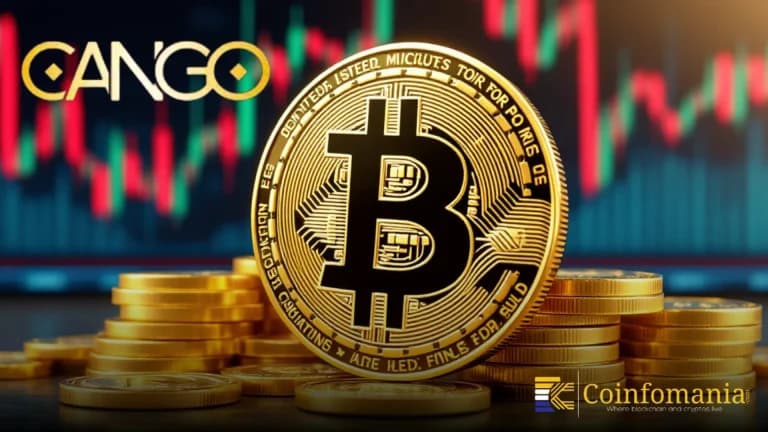Binance Faces French Probe Over Money Laundering Allegations
"Binance faces a French probe over money laundering. What could be the implications for the crypto industry?"

Quick Take
Summary is AI generated, newsroom reviewed.
Binance faces a French probe over money laundering, tax fraud, and unlicensed operations.
The investigation covers activities between 2019 and 2024, including possible links to drug trafficking.
Binance denies all allegations, citing full compliance with legal and regulatory requirements.
The case highlights growing global pressure on cryptocurrency exchanges to follow stricter regulations.
The Public Prosecutor’s Office of France has announced an investigation into Binance, the cryptocurrency exchange that is one of the biggest in the world, for potential violations of anti-money laundering statutes. The investigations concern actions which occurred between 2019 and 2024. Investigators allege that Binance processed funds which were directly related to money laundering, tax fraud, and criminal finance. These investigations are already becoming contentious in the media and crypto ecosystem.
Moreover, the inquiry is assessing drug trafficking networks that may be linked to cryptocurrencies, raising questions about the suitability of exchange monitoring of activity for unauthorized activity. Binance has also indicated that it has strong anti-money laundering (AML) policies in place and meets relevant laws and regulators in each region or jurisdiction where it is permitted. Nevertheless, France has initiated at least two levels of inquiries into Binance’s operations and the regulatory and compliance obligations linked with them.
🚨BREAKING: Binance faces French probe over money-laundering checks.🇫🇷 pic.twitter.com/EUfeBpn21o
— Coin Bureau (@coinbureau) October 17, 2025
What Are the Allegations Against Binance?
French investigators have highlighted three primary allegations against Binance. First, the exchange is suspected of enabling money laundering operations that may involve criminal networks. This raises serious concerns about Binance’s internal controls and monitoring systems.
Secondly, government officials are investigating whether Binance might be involved in tax fraud by potentially facilitating actions that prevented tax chargeability on any activities. Officials are scouring reports to check if Binance’s activities violated French tax laws.
Third, it’s alleged that Binance operated in France at certain times, with no licenses. Such allegations question the exchange’s compliance with European regulations related to cryptocurrency. When considered in totality, these allegations illustrate the rising regulatory interest in major exchanges related to cryptocurrency.
Implications for the Cryptocurrency Industry
The French investigation into Binance underscores the mounting pressure regulators are placing on cryptocurrency exchanges around the world. Governments are asking for more robust AML procedures and stricter examinations. This could potentially establish a framework for how exchanges will be expected to operate in Europe and beyond, which will have implications for the larger crypto ecosystem overall.
For Binance, this investigation could have major consequences. If they find wrongdoing, Binance could potentially be subject to significant fines, stricter operational requirements, and possibly limited access to markets.
What This Means for Investors and Users
It is important for Binance users and potential investors to pay attention to the progress of this investigation. The legal conclusions may affect the operation of the exchange, and its services offered in France and Europe. Binance reassures its users that it has maintained a safe and compliant operating model. In the countries where it operates, but the possibility of regulatory penalties creates uncertainty in terms of trading volume and market confidence.
It also serves as a reminder to all cryptocurrency users that regulations are expanding across Europe. It is important for users to understand that exchanges. Now have additional obligations to monitor for money laundering and tax fraud. As the exchanges increase their obligations in this respect, it is likely that verification processes will become more extensive and transaction monitoring will become more vigorous.
Final Thoughts
The case against Binance’s activities in France is evidence that compliance is taking center stage in the evolving crypto market. As Binance navigates those legal challenges, the results will have implications for the wider industry and the nature of compliance requirements imposed on exchanges across the world. Everyone will be watching how the reports impact global standardization of crypto compliance experiences.
Follow us on Google News
Get the latest crypto insights and updates.
Related Posts

White House Hosts Second Stablecoin Summit With Banks and Crypto Giants
Triparna Baishnab
Author

Bitcoin Miner Cango Sells 4451 BTC To Cut Debt And Move Into AI Computing Infrastructure
Vandit Grover
Author

Know How Many BTC Did Cango Sold and Moved to AI Computing Infrastructure
Vandit Grover
Author